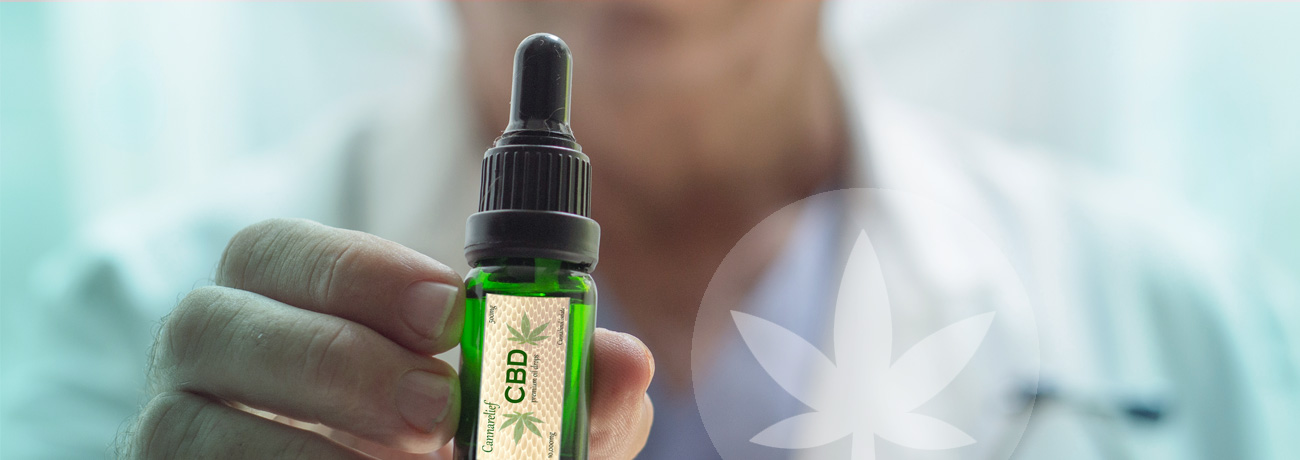How to Talk to Your Doctor About CBD
Last updated:
Published:
Talking to your doctor about CBD needn't be worrying
The stigma attached to CBD is slowly, but surely, fading. Not only do people realise the difference between hemp and marijuana, but the focus has shifted. Interest has turned to the therapeutic potential of cannabinoids and what they can do for mental and physical ailments. If you think there is an opportunity for CBD to support you in some way, then don't waste it by not talking to your doctor about it.
Remember, a doctor’s job isn't to judge you or criticise your views on alternative treatments. Doctors are there to help treat and manage any health conditions you might have, while giving advice and guidance. Your doctor will have an understanding of your complete medical history, and as such, they are in an excellent position to discuss whether you should use CBD. As it’s an emerging compound, there is still a lot we don't know about this cannabinoid—there may be something you haven't considered that your doctor points out.
Some basic research is vital before talking to your doctor about CBD
Our understanding of CBD grows by the day, and as such, it pays dividends to understand what therapeutic effects may the compound have. Before broaching the subject with your doctor, understand what it is that you want to achieve with CBD, and what, if any, research supports this outcome. You can move onto step two—understanding what CBD products are on offer.
CBD can be consumed in several different ways, with each method having advantages and disadvantages. CBD vape liquids can be inhaled, while drops are typically taken several times a day on, or under the tongue. You can also add CBD tinctures to drinks or foods, and some CBD products feature extra components, such as liposomes, vitamins and minerals.
It would be impossible to cover the pros and cons of every product in this article, but on the Cibdol website you can find numerous articles and detailed product descriptions that discuss the main benefits of each product type.
Double-checking the legal status of CBD is a must
With an idea of what you want to use CBD for and the ideal product lined up, it is time to double-check the legal status of the compound in your country. In the majority of situations, CBD derived from commercial hemp will be legal to buy and use. If you live in an area where medical or recreational cannabis is accepted, make sure you check the source of your CBD products before committing to a purchase.
It is common for people and doctors to assume you are talking about medical marijuana when talking about CBD. This is not the case, as high-quality, hemp-derived CBD oils contain traces of THC only. Aside from the benefits of the entourage effect, CBD produced to this standard is not restricted in the same way as any cannabis-derived products.

Drug interactions are a possibility with CBD
When CBD is consumed, it passes through our digestive system before being broken down by enzymes in the liver and entering the bloodstream. There is nothing unusual about this interaction, as this is how the body processes a large proportion of medications. There is, however, a possibility of CBD-drug interaction due to the way CBD influences the cytochrome P450 enzyme inside our liver.
CBD can inhibit the enzyme, slowing down the rate at which other compounds are broken down and allowing them to stay in your system for longer. This can lead to adverse side effects and should be a key talking point with your doctor.
While several drug interactions with CBD have been observed, it is impossible to know if the medication you are taking will interact with CBD. In some cases, the delay in metabolism won't cause any serious issues, but your doctor is the person who will be able to give you a definitive answer. The outcome may be that while you take CBD, the doctor will schedule extra blood tests to check certain substance levels are what they should be.
Don't be afraid to ask for a second opinion
The main issue with CBD is that research is still in its infancy, and knowledge among medical professionals may be lacking. That isn't to say asking for a second opinion means your doctor is incompetent, but medical journals do not make for light reading, and it is unrealistic to expect every doctor to keep up-to-date with developments regarding CBD. There may be another doctor or physician who has a better understanding of CBD and thus provide you with a more informed answer.
Before, during, and after your appointment, the main thing to remember is that there is nothing wrong with asking about CBD. Research into the compound appears favourable, and it may support your wellbeing. Just make sure that you have a good understanding of what it is you want from CBD, and build upon that with advice from your doctor. From a medical perspective, they will know you best, and should always be the first port of call if you have any doubts or questions about CBD.









